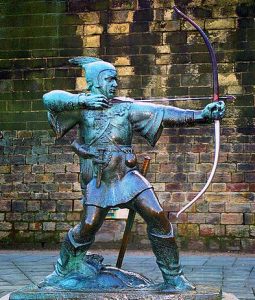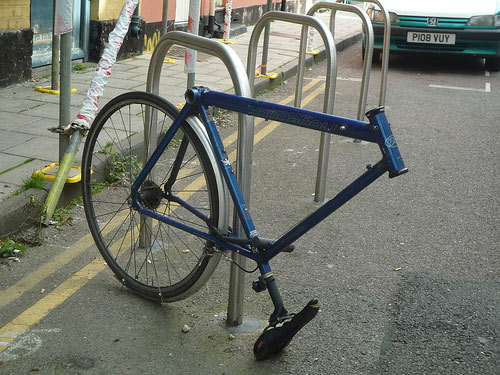Readers question: Hello Tejvan! I wonder if you can explain if crimes have a net beneficial impact on the economy? Thank you!
A nice change from Brexit problems. Does crime increase economic welfare?
Let us suppose Tejvan buys a nice bicycle for £1,000 to commute into work. But, whilst locked up outside the office it gets stolen.
The thief takes this bike and sells it for £200 on the black market. Tejvan is really dissappointed, but he needs a bicycle to get to work. He then reluctantly goes out and spends £700 on a new bike – running down his savings.
Who gains from this crime?
- The bike thief makes a profit of £200 for a small amount of work. He spends this on alcohol, clothes and illegal drugs, so drug dealers gain some more income too.
- The bike shop benefit from selling a second new bike to Tejvan for £700. The government also receive VAT revenue from this second sale, but they gain nothing from the second hand market sale.
- The customer who bought stolen bicycle, benefits from getting a very good bike for £200. This gives him a high consumer surplus.
Who loses from this crime?
- Although one bike shop has sold a second bike for £700, generally bike shops are adversely affected by the second hand bike market being flooded with cheap stolen bikes.
- Because there is a lot of opportunity to buy really cheap second hand (stolen) bikes, bike shops mis out on sales to the customers who buy second hand rather than brand new.
- Also, because the thief sells the good bike for a massive discount, this puts downward pressure on the market price for new bikes from bike shops. This downward pressure and lower demand, makes the market less profitable. Therefore, although bike shops seem to benefit from selling a second bike to Tejvan, they are also losing out to the second hand market where stolen bikes are sold.
- Because Tejvan has spent £700 on a second bike, it means he can’t afford to go on holiday to the Lake District and has to make do with a summer of cycling around the Cotswolds, therefore, because of this crime, other sectors in the economy lose out from less demand.
- Unhappiness index. Economics is not just about real GDP calculations. Crime is one of the biggest factors diminishing quality of life. There is joy in buying first bike for £1,000. But, having to spend £700 on a second bike is done with regret and feelings of bitterness. Also because Tejvan couldn’t afford to spend £1,000 a second time, he has left with an inferior quality good.
- Resources on policing. Due to the crime wave in Oxford, voters tell politicians they want to pay higher taxes in order to have more police. Therefore, more resources in society are devoted to crime prevention, which means less resources for the NHS and consumer services.
- Eventually the thief is caught and although many bikes are still missing, he is sent to jail for 12 months. Going to jail for a year costs the economy and taxpayer, requiring higher taxes. It is estimated that each new prison place costs £119,000 and that the annual average cost for each prisoner exceeds £40,000 (link). Also, in jail the thief learns how to steal cars and gains criminal connections, so when he leaves he is not reformed but a better qualified thief.
- Finally, the person who bought the second hand bicycle for a suspiciously low price starts to feel pangs of regret that maybe this bike was stolen. Although the marginal utility of the bike is much grater than the marginal cost (£200), his overall utility from consumption is diminished because in the back of his mind he thinks something is wrong. This moral uncertainty is a net economic welfare loss. Eventually, he faces the karmic consequences and this bike is stolen by someone else.
Evaluation – Robin Hood to the rescue

Robin Hood then turns up at the mansion and steals many valuables. Robin Hood then sells these valuables and distributes the proceeds amongst the poor. The poor have a high marginal propensity to consume, so the depressed economy benefits from a surge in spending, which creates jobs and a positive multiplier effect. The miserable millionaire who hoards his savings is unhappy, but he still has a lot of savings and he doesn’t alter his spending decisions because of the loss of part of his fortune. Overall, economic welfare has increased, though it isn’t a pareto improvement because the millionaire is even more miserable now he has lost his priceless jewels.
In this case, the crime wave against people with a high marginal propensity to save has led to an increase in economic growth and a rise in living standards.
However, the success of Robin Hood is then imitated and many other people start stealing too – not just from wealthy monopolists but average people too. In a short time, law and order break down and everyone is left feeling very miserable. Maybe crime doesn’t pay after all.
Related

